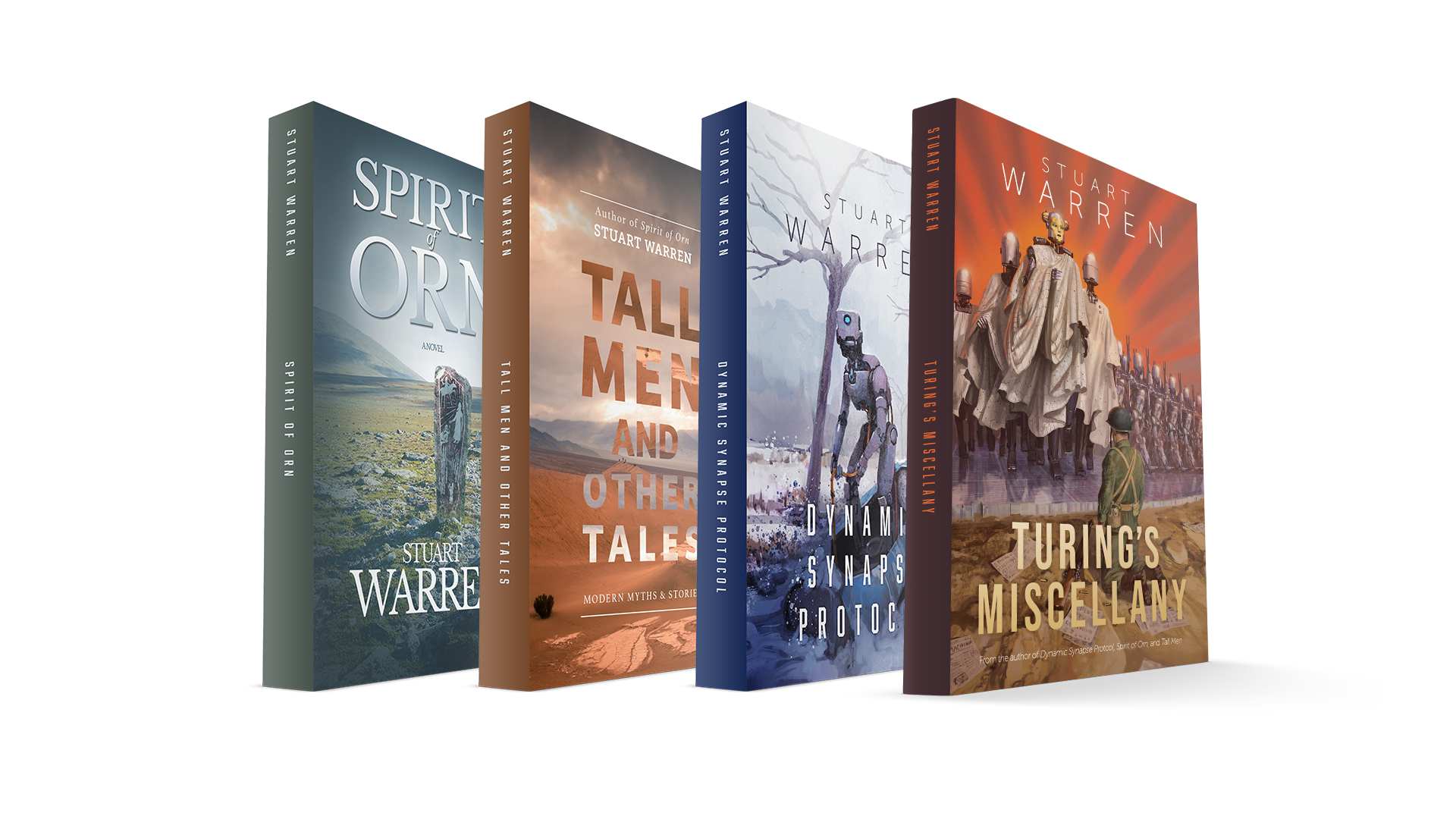
Hello, I’m Stuart. A down-to-earth comic nerd who writes books, drinks craft beer and dives deep into the unknown.
I’m currently available for writing and editing fiction, comics, and games.
Stuart Warren, Author of Dynamic Synapse Protocol, Spirit of Orn, and Tall Men and Other Tales!
Comics
Stuart is the former managing editor and webmaster for Sequart Organization and avid DC comic fanboy.
Games
Stuart has been a contract writer on award-winning tabletop games like Mike Hutchinson’s Hobgoblin and Eternøl.
The Working Author
Like many other, Stuart works full-time in IT to help support his writing career. But he also writes about the experience and shares what he learns along the way on his blog.

Stuart will humbly write four quality 300 page novels or collections of short stories and act like he’s not making progress on his writing. Don’t let him fool you, he’s doing excellent work and at this rate we’ll be digging up his books well into the future.
Gregory Horton, Electi Studio
